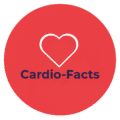Cardiovascular Tests & Diagnosis
Understanding your heart health starts with the right tests. At CardioFacts, we explain the most common cardiovascular diagnostic tools — how they work, when they’re used, and what they reveal about your heart.
🩺 Common Cardiovascular Diagnostic Tests
🔹 Electrocardiogram (ECG or EKG)
A non-invasive test that records the electrical activity of the heart. It helps detect arrhythmias, ischemia, and previous myocardial infarctions.
Used for: Chest pain, palpitations, fainting, screening.
🔹 Echocardiogram
An ultrasound of the heart that visualizes heart structure and function. It helps assess valves, chambers, and ejection fraction.
Used for: Murmurs, shortness of breath, heart failure, valve disease.
🔹 Stress Test (Exercise ECG or Imaging Stress Test)
Evaluates how your heart performs under physical stress. It can be performed with a treadmill or medication.
Used for: Suspected coronary artery disease, assessing prognosis.
🔹 Holter Monitor & Event Recorder
Portable devices that record ECG over 24–72 hours or more to detect intermittent arrhythmias.
Used for: Palpitations, syncope, unexplained dizziness.
🔹 Cardiac CT and Calcium Score
High-resolution imaging to detect coronary artery calcium and anatomical abnormalities.
Used for: Risk stratification, early detection of coronary disease.
🔹 Cardiac MRI
Provides detailed images of heart muscle, scarring, or inflammation without radiation.
Used for: Myocarditis, cardiomyopathy, congenital heart disease.
🔹 Coronary Angiography
An invasive test using contrast and X-ray to visualize coronary arteries in real time.
Used for: Acute coronary syndrome, severe angina, planning revascularization.
🧪 Blood Tests
- Troponin: Indicates myocardial injury.
- BNP/NT-proBNP: Marker of heart failure.
- Lipid profile: Evaluates cholesterol levels.
- CRP hs: Inflammation marker for cardiovascular risk.
✅ Summary
Timely and accurate diagnosis is essential to prevent serious complications. These tests, interpreted by experienced cardiologists, guide life-saving decisions.
📘 Disclaimer: The information on this site is for educational purposes only and should not replace professional medical advice. Always consult a cardiologist for personalized guidance.
